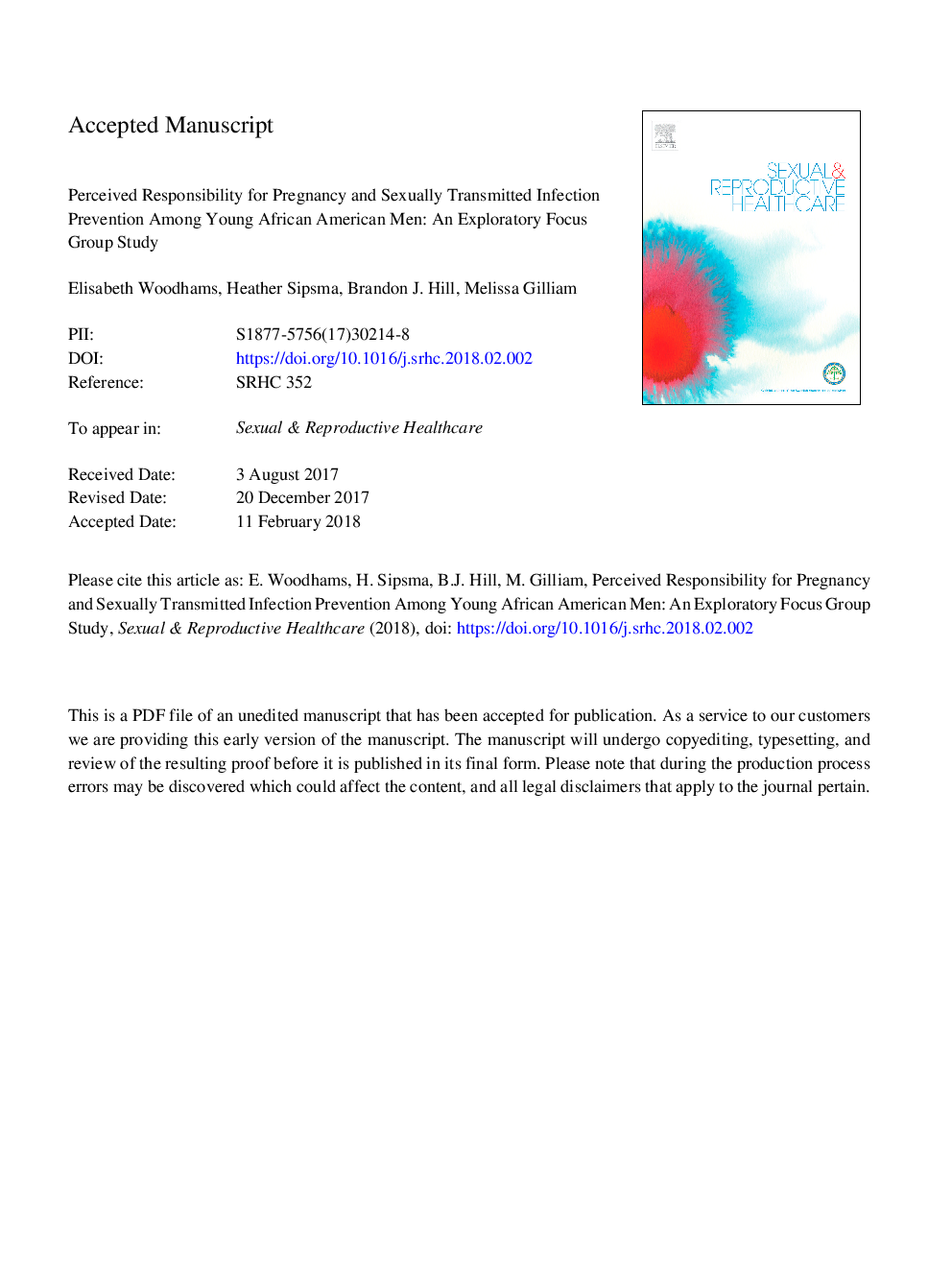ترجمه فارسی عنوان مقاله
مسئولیت پذیری در بارداری و پیشگیری از عفونت های منتقله از راه جنسی در میان مردان آفریقایی آمریکایی جوان: یک مطالعه گروه تمرکز اکتشافی
عنوان انگلیسی
Perceived responsibility for pregnancy and sexually transmitted infection prevention among young African American men: An exploratory focus group study
| کد مقاله | سال انتشار | تعداد صفحات مقاله انگلیسی |
|---|---|---|
| 130692 | 2018 | 27 صفحه PDF |
منبع

Publisher : Elsevier - Science Direct (الزویر - ساینس دایرکت)
Journal : Sexual & Reproductive Healthcare, Volume 16, June 2018, Pages 86-91

